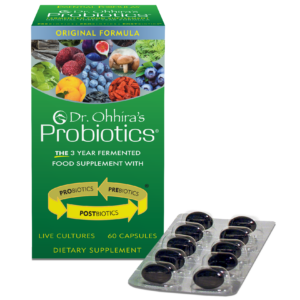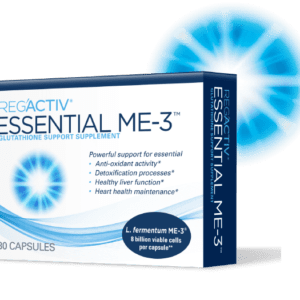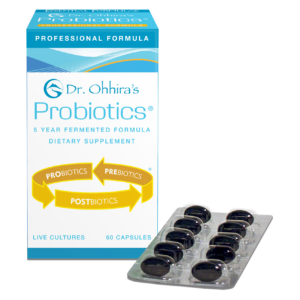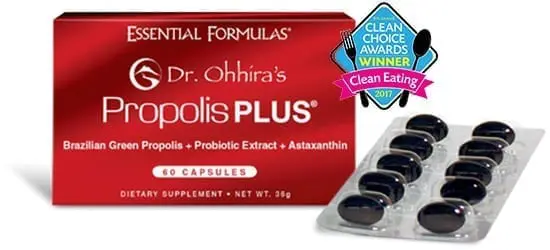By Ross Pelton, RPh, PhD, CCN
Scientific Director, Essential Formulas
What Are PPIs?
Proton Pump Inhibitors (PPIs) are anti-acid medications that treat severe gastrointestinal issues such as GERD, peptic ulcers, heartburn, acid reflux, and stomach ulcers.
More than 60 million people in the U.S. experience some of these symptoms every month. This class of medications is the most commonly prescribed class of drugs to treat acid-related gastrointestinal disorders.
Following is a list of the main available medications:
- Omeprazole (Prilosec)
- Lansoprazole (Prevacid)
- Rabeprazole (Aciphex)
- Pantoprazole (Protonix)
- Esomeprazole (Nexium)
- Omeprazole and sodium barcobinate (Zegerid)
- Dexlansoprazole (Dexilant)
How Do PPIs Work?
PPIs block the location in the parietal cell where the stomach produces acid. They should be taken 30-60 minutes before a meal to decrease the chances of having heartburn.
These medications have been prescribed for more than 30 years. They work to reduce stomach acid levels, decrease heartburn and acid reflux symptoms, and assist in stomach ulcer and esophageal inflammation healing.
Short-Term PPI Use
PPIs are typically prescribed for one to two weeks, along with antibiotics for H. pylori infections. If you have ulcers or esophageal inflammation, your doctor may prescribe them for four to 12 weeks. Your doctor may also prescribe them to relieve symptoms while figuring out why you’re having abdominal discomfort.
In many cases, PPIs improve the condition, and your doctor may reduce or discontinue your dose.
Long-Term PPI Use
Your doctor may prescribe long-term use of PPIs if you have severe esophagitis and related conditions, ongoing acid reflux, dyspepsia, or upper gastrointestinal bleeding from ulcers.
PPI Side Effects
Adverse effects from PPIs are infrequent, but they have been associated with pneumonia and C. difficil. C. difficil typically occurs after antibiotic use, causing infection in the colon with symptoms including diarrhea and life-threatening colon damage. It occurs in the general population, but most cases happen in a hospital or care environment.
Small Intestine Bacterial Overgrowth (SIBO) is another potential intestinal side effect. It can be caused by C. difficile or Salmonella spp., among others. SIBO can appear like irritable bowel syndrome with bloating, abdominal pain and discomfort, or diarrhea.
PPIs can cause drug interactions, so make sure your doctor knows every medication you take. Your physician may recommend a dosage change for your other medicines to compensate. Examples of medications PPIs may affect are clopidogrel (Plavix) and warfarin (Coumadin).
Stopping PPIs
Work with your healthcare practitioner if you experience side effects from PPIs. They may suggest reducing your dose for a time to “step down” from the medication.
When you reduce your dose, your body can rebound by secreting more stomach acid, exacerbating symptoms. Your doctor may suggest a different medication or an over-the-counter product to manage symptoms while you reduce your PPI dosage.
How Long-Term PPI Use Affects Your Gut Biome
Some PPIs are available by prescription, and some are available over the counter. When taken correctly, they are safe and effective. However, the risks are more significant with long-term use or when taken longer than necessary.
A study of 1815 individuals analyzed the gut microbiome composition of PPI users and non-users. The study included 211 participants who were using PPIs.
The analysis showed significantly higher populations of oral bacteria in the stools of PPI users, particularly genera Enterococcus, Streptococcus, Staphylococcus, and Escherichia coli, which is potentially pathogenic.
PPIs can also decrease the absorption of calcium, magnesium, and vitamin B12. The FDA has issued class warnings about PPIs and their effect on magnesium levels. Another warning for this class of drugs concerns acute interstitial nephritis (swelling of the kidney tubules) and vitamin B12 deficiency.
How Does This Happen?
PPIs alter the pH in the gut, stripping our first line of defense against the harmful bacteria that might enter our bodies from the air we breathe, the water we drink, or the food we eat. They are more likely to survive and even thrive in this environment, disrupting or eliminating the good bacteria that keep them in balance.
Probiotics
Probiotics are helpful bacteria that live on our skin, in our mouths, in our digestive tract, and throughout our bodies. They keep harmful or pathogenic bacteria in check and create certain nutrients.
Scientists are researching different strains of probiotics for their effects on various body systems, including the heart, hair, gut, skin, urinary, mood, stress, and more. Researchers continue to experiment because early indications signal that probiotics can be helpful in the human body.
Can Probiotics Help with PPI-Related Symptoms?
Research on pairing probiotics with PPIs is still in the early stages, but the results are promising. Two studies involved participants taking PPIs for 12 weeks.
In the first study involving adults, one group received probiotics along with PPIs; the other received a placebo with PPIs. In both cases, the participants who took the probiotic with the PPI had reduced cases of SIBO and diarrhea.
A second study investigated how probiotics affect SIBO in children with GERD. Again, the study broke the group into two. One received PPIs with a probiotic, and the other received PPIs with a placebo. The children who took probiotics had lower incidents of SIBO than the placebo group.
GERD studies involving probiotics have mainly used Lactobacillus bacterial strains. Studies on acid reflux have used other strains, such as Bacillus subtilis and Enterococcus faecium.
How Do I Start Using Probiotics with PPIs?
If you want to find out if probiotics can help with PPI side effects, the very first step is to consult your healthcare team. They can consider your overall physical condition, how long you’ve taken PPIs, your syptoms, and your history to decide whether probiotics might be helpful for you.
Probiotics are generally considered safe for those in reasonable health. If your health is severely compromised or you’ve recently had surgery or a long hospital stay, consult your doctor before taking them.
What Should I Look for In a Probiotic?
If you and your doctor decide that a probiotic could be helpful, you will get the best results when you choose a high-quality product such as Dr. Ohhira’s probiotics. Dr. Ohhira has combined ancient Japanese wisdom with the latest science about probiotics to create this product that clinical nutritionists trust.
- Purity – you will find only foods you recognize on the ingredients label
- All natural – the ingredients are seasonal and wild-harvested
- Hypoallergenic – free of dairy and gluten
- Multiple strains – the most effective probiotic supplements contain multiple strains of bacteria
- Contains prebiotics – prebiotics not only support the viability of the probiotics before you take the supplement; they also provide nourishment to the friendly bacteria you already have
A Few Final Thoughts
Probiotics are showing great promise in enhancing human immune health and quality of life. While research is in its early stages, multiple studies show benefits to the body and digestive system of those who take PPIs. If you decide with your physician to see what probiotics can do for you, we are happy to help.
Contact us online or phone us at 972-255-3918. We’ll be happy to answer any questions you might have about our product or probiotics in general.
-
 Dr. Ohhira’s® Probiotic Supplements$13.95 – $89.95
Dr. Ohhira’s® Probiotic Supplements$13.95 – $89.95 -
 Reg´Activ Essential ME-3$39.95
Reg´Activ Essential ME-3$39.95 -
 Dr. Ohhira’s® Probiotics Professional Formula$39.95 – $129.65
Dr. Ohhira’s® Probiotics Professional Formula$39.95 – $129.65
- https://www.medicalnewstoday.com/articles/proton-pump-inhibitors
- https://aboutgerd.org/treatment/medications/proton-pump-inhibitors-ppis/
- https://www.health.harvard.edu/diseases-and-conditions/what-you-should-know-about-ppis
- https://www.health.harvard.edu/blog/proton-pump-inhibitors-should-i-still-be-taking-this-medication-202209062809
- https://link.springer.com/article/10.1007/s43440-023-00489-x
- https://pubmed.ncbi.nlm.nih.gov/26657899/
- https://www.ncbi.nlm.nih.gov/pmc/articles/PMC5221858/
- https://consultqd.clevelandclinic.org/long-term-use-of-ppis-has-consequences-for-gut-microbiome/
- https://www.medicalnewstoday.com/articles/probiotics-for-acid-reflux#how-could-they-help
- https://essentialformulas.com/contact/
- https://essentialformulas.com/dr-ohhira-difference/
- https://essentialformulas.com/12-probiotic-strains/
- https://essentialformulas.com/contact/






